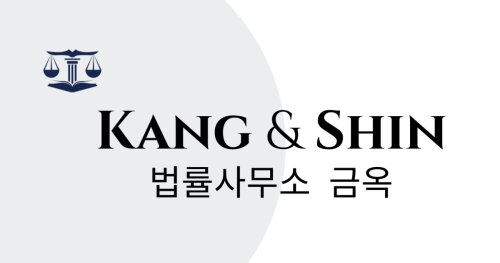Best Job Discrimination Lawyers in South Korea
Share your needs with us, get contacted by law firms.
Free. Takes 2 min.
Or refine your search by selecting a city:
List of the best lawyers in South Korea
About Job Discrimination Law in South Korea
Job discrimination in South Korea is an enduring issue that affects individuals across various industries. As the nation continues to evolve socially and economically, the importance of ensuring equal employment opportunities and treatment has become more prominent. Job discrimination can occur based on gender, age, disability, nationality, religion, or other personal characteristics. The South Korean government has established a legal framework to combat such discrimination and protect employees, including enforcing strict laws to promote workplace equality.
Why You May Need a Lawyer
There are numerous situations in which individuals may require legal assistance when dealing with job discrimination in South Korea. Common scenarios include:
- Being unfairly dismissed or demoted due to discriminatory reasons.
- Experiencing harassment or a hostile work environment due to personal characteristics.
- Facing unequal pay or denial of promotions based on gender, age, or other non-merit factors.
- Not receiving reasonable accommodations for disabilities.
- Being retaliated against for reporting discrimination or participating in related investigations.
Legal guidance can help navigate the complexities of filing complaints, gathering evidence, and pursuing rightful compensation or resolution.
Local Laws Overview
South Korea has implemented several key laws to address job discrimination:
- Equal Employment Opportunity and Work-Family Balance Assistance Act: This law mandates equal treatment and prohibits discrimination based on gender, marital status, age, and other factors.
- Labor Standards Act: While primarily focusing on wages and working conditions, this act also contains provisions that prevent discrimination in employment practices.
- Act on the Prohibition of Discrimination against Disabled Persons: This law specifies the need for reasonable accommodations and prohibits discrimination against individuals with disabilities.
- Employment of Foreign Workers Act: Protects foreign workers from mistreatment and ensures their rights are upheld in the workplace.
Understanding these laws can aid in identifying acts of discrimination and knowing when to seek legal intervention.
Frequently Asked Questions
What constitutes job discrimination in South Korea?
Job discrimination occurs when an individual is treated unfairly in the workplace due to characteristics like gender, age, nationality, disability, or religion, rather than on merit or qualifications.
What should I do if I believe I am a victim of job discrimination?
If you feel you are experiencing discrimination, document the incidents, gather evidence, and consider consulting with a legal expert specializing in employment law.
Can I file a complaint without a lawyer?
Yes, you can file a complaint with the Ministry of Employment and Labor or the National Human Rights Commission of Korea. However, having a lawyer may strengthen your case and assist in navigating legal complexities.
Is gender-based discrimination illegal in South Korea?
Yes, gender-based discrimination is illegal and addressed by the Equal Employment Opportunity and Work-Family Balance Assistance Act, which ensures equal treatment in the workplace.
How does South Korea handle workplace discrimination cases?
Discrimination cases are typically handled through administrative bodies like the Ministry of Employment and Labor or judicial proceedings, depending on the severity and nature of the case.
Are there laws protecting foreign workers from discrimination?
Yes, the Employment of Foreign Workers Act provides provisions to protect foreign workers against discrimination and ensures fair treatment in employment.
Can employers retaliate against me for reporting discrimination?
No, retaliatory actions against individuals who report discrimination or participate in investigations are illegal under South Korean law.
What compensation can I receive if I win a discrimination case?
Successful claimants may receive compensation for damages, reinstatement to their position, or other forms of redress as deemed appropriate by the court or relevant authorities.
How long does it take to resolve a job discrimination case?
The duration varies widely, depending on the complexity of the case, the parties involved, and the judicial system's workload. It can take several months to years.
Can I negotiate with my employer without going to court?
Yes, many cases are resolved through negotiation or mediation, which can be facilitated by lawyers or government agencies to reach a fair settlement outside of court.
Additional Resources
For more information or assistance, consider reaching out to the following resources:
- Ministry of Employment and Labor: Offers guidance and support for employment-related issues.
- National Human Rights Commission of Korea: Provides resources and assistance for discrimination claims.
- Local Legal Aid Centers: Offers legal counseling and services to those in need.
- Non-Governmental Organizations (NGOs): Organizations focused on labor rights can provide additional support and advocacy.
Next Steps
If you require legal assistance with a job discrimination issue in South Korea, consider the following steps:
- Document Everything: Keep records of incidents, communications, and any evidence of discrimination.
- Seek Legal Consultation: Consult with a lawyer specializing in employment law to understand your rights and options.
- Utilize Government Resources: Contact relevant government bodies like the Ministry of Employment and Labor for assistance and to file a complaint.
- Consider Mediation: Explore options for mediation or negotiation as a preliminary step before pursuing formal legal action.
- Stay Informed: Keep abreast of updates in employment law and labor rights to better advocate for yourself and others in the workplace.
Taking these proactive steps can help ensure your rights are protected and that you receive fair treatment in your employment endeavors.
Lawzana helps you find the best lawyers and law firms in South Korea through a curated and pre-screened list of qualified legal professionals. Our platform offers rankings and detailed profiles of attorneys and law firms, allowing you to compare based on practice areas, including Job Discrimination, experience, and client feedback.
Each profile includes a description of the firm's areas of practice, client reviews, team members and partners, year of establishment, spoken languages, office locations, contact information, social media presence, and any published articles or resources. Most firms on our platform speak English and are experienced in both local and international legal matters.
Get a quote from top-rated law firms in South Korea — quickly, securely, and without unnecessary hassle.
Disclaimer:
The information provided on this page is for general informational purposes only and does not constitute legal advice. While we strive to ensure the accuracy and relevance of the content, legal information may change over time, and interpretations of the law can vary. You should always consult with a qualified legal professional for advice specific to your situation.
We disclaim all liability for actions taken or not taken based on the content of this page. If you believe any information is incorrect or outdated, please contact us, and we will review and update it where appropriate.
Browse job discrimination law firms by city in South Korea
Refine your search by selecting a city.















